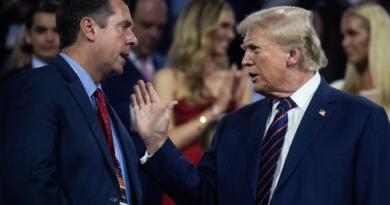Wealthy Americans are more worried about finances than usual. Financial experts share their high net-worth clients’ 3 biggest concerns
2023 was a whirlwind for the U.S. economy, with a number of headwinds—rising credit card debt, slumping housing sales, and the increasing cost of living—offset by a strong job market and robust consumer spending.
Still, many Americans report feeling uncertain about their financial futures, and high-net-worth (HNW) investors are no different. In fact, just 59% of affluent Americans report feeling financially secure in 2023, compared to 72% in 2022. Over 62% worried about their financial future this year, thanks to market volatility and global issues.
Of course, each investor has their own individual worries. Many affluent Gen Xers, for example, are most worried about retirement planning, while many younger investors are focused on building a business, says Rich Aneser, chief strategy officer at wealth management technology company Envestnet.
HNW investors are taking many of the concerns of this year into next, including inflation, market volatility, and unknown factors on the global stage. In turn, how this group of Americans chooses to spend and invest can have ripple effects throughout the economy. Generally speaking, here’s what financial experts say HNW investors—defined as those with liquid assets worth at least $1 million—should be considering in the new year.
Managing inflation and interest rates
Inflation may be easing up, but that doesn’t mean that its impact isn’t long-lasting, says Jeff Vivacqua, president of growth and development at Cambridge Investment Group.
“We believe the number one cause of concern continues to be inflation,” he says. “While short-term inflation is typically something that has fallen off the regular HNW investor’s radar, the lasting effects of this long-term inflationary environment could be concerning and may need to be addressed.”
And in tandem with changes in interest rates and market volatility, inflation can create an environment of uncertainty, leading investors to play it safe. But doing so can lead to considerable losses, the advisors say.
“Keeping an adequate cash reserve is still fundamental to financial planning, but investors should consider adding to their overall asset allocation mix or, at a minimum, reallocating cash toward fixed income,” says Bob Peterson, senior wealth advisor at Crescent Grove Advisors.
Inflation and rising interest rates already have wealthy consumers pulling back spending, which could be a bad sign for the broader economy going into 2024.
Preparing for retirement
One of the top concerns for most HNW investors is ensuring they can maintain their desired lifestyle in retirement, says Aneser. That extends far beyond ensuring they have enough savings.
“Going into the New Year, advisors should think about expanding their scope of advice beyond investments for their clients, to include services such as estate planning, tax advice, loan and credit management, life insurance, and health planning,” he says.
This is important for clients of all ages, not just those nearing the traditional retirement age, says Peterson. HNW investors need to consider how interest rates—and potentially cuts—are affecting their investments, as well as whether a rebalance is in order.
“Creating and discussing a retirement cash flow projection can help forecast whether their situation aligns with their expectations or if changes need to be made to reach their retirement goals,” says Peterson.
While $1 million used to be a benchmark for a successful retirement, some advisors put the new figure at double that or more, particularly for people who plan to live in expensive cities like New York.
Tax planning
With the presidential election next year, taxes are likely “to get an airing in 2024,” says Bryan Kirk, director of estate and financial planning at Fiduciary Trust International. That’s especially true for this coming election, as a slew of tax cuts implemented by former President Donald Trump are set to expire in 2026.
If those cuts, which stem from the 2017 Tax Cuts and Jobs Act, sunset, “taxes would increase for most U.S. households,” according to the Urban Institute’s Tax Policy Center. But wealthier households—which disproportionately benefited from the cuts—will face a number of increases. In particular, Kirk says HNW investors should consider what they will do if the estate tax exemption is cut in 2026.
Currently at around $13 million for individuals in 2024 (double for married couples), this is the amount excluded from the estate tax when a person dies. The exemption will fall to around $7 million in 2026 if the law doesn’t change.
“The answer to this drop is to use the exemption now before they lose it—and that typically means making large gifts to trusts for children and other descendants,” Kirk tells Fortune. “There’s a lot of thought that needs to go into making these gifts, and a range of tax planning options to consider, so the two years until 2026 is actually not a lot of time.”
Other possible changes if the tax laws sunset include tax rates increasing and the standard deduction decreasing. That means HNW investors will need to start planning now. For example, if you want to convert a traditional IRA to a Roth IRA at the current lower tax rates, you can spread the conversion over two years if you start in 2024.
“If nothing else, HNW investors should be thinking about how the 2026 sunset will affect them and how they’re going to deal with it,” says Kirk.
One way to limit their tax burdens? Charitable giving, says Crescent Grove Advisors’ Peterson. Working with an advisor and lawyer now can ensure HNW investors get ahead of the tax law changes. One way to do so is through a donor-advised fund, he says, which allows investors to avoid capital gains while also receiving a tax deduction.
“Upcoming estate tax changes have created a renewed urgency for high-net-worth clients to revisit their estate plans,” he says.




